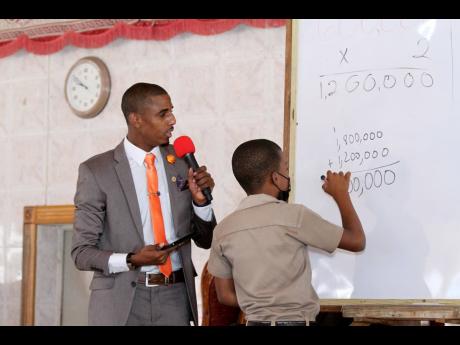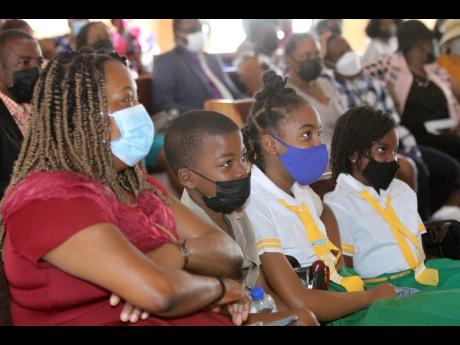Math teachers urged to get creative with kids
There is high hope that the recent full-scale resumption of face-to-face classes will reignite the interest of students and teachers alike in mathematics – a subject that continues to record underperformance in primary and secondary schools.
That optimism, offered by Sophia Forbes Hall, director of regional educational services for Region Six in the Ministry of Education and Youth, will, however, face strong headwinds of cultural resistance to a subject promulgated as a key driver of industry and STEM education, inclusive of science, technology, and engineering.
In the 2021 June-July exam administered by the Caribbean Examinations Council (CXC), only 38.2 percentage of students attained a passing grade, which translated to a 23 per cent decline.
Those results, and the uphill battle faced by educators, could be attributed to what Forbes Hall calls “a fear factor” – a decades-old concern hovering over Jamaican classrooms and the failure, over time, to demystify the curriculum.
“We want to see math as any other subject they love, to embrace it, to see the value of math and to understand that with math comes growth in our economy generally, and so it is important that they embrace it so that teachers and students can contribute to the improved performance in mathematics,” said Forbes Hall in a Gleaner interview following Sunday’s service at the New Testament Church of God in May Pen, Clarendon, to launch the commencement of Mathematics Week.
Flandria Scott, teacher and leader of the Mathematics Club at Toll Gate Primary and Infant School in Clarendon, understands the scale of the problem and is chipping away at the cultural barriers. She said that she is motivated to stimulate appreciation for the subject among her students.
“They are excited about learning math because the things we do in the club get them to love math more. We do games, quizzes, and we will show them videos and do role plays, so we use different mediums to get to them,” Scott said in a Gleaner interview.
Scott boasts that her school has developed effective strategies to impart mathematical concepts, propelling students to several academic awards. She believes that introducing mathematics as a fun concept to early childhood students could spark greater interest in the subject as they matriculate into more advanced stages of learning.
“This is telling us as educators that when we receive them at the first stage of their lives, we are to introduce math to them in a fun way so that they will love it, want to do it, and yearn to do it,” Scott added.
That is the kind of rearguard action that acting Permanent Secretary Maureen Dwyer and Dr Tamika Benjamin, national mathematics coordinator, want to see.
Benjamin believes that winning the war of attrition in mathematics education depends heavily on the deployment of creative strategies to change attitudes. And a major tool in that battle is methodology, she said.
“A big part of what we try to promote when it comes to teaching and learning is differentiation, and we differentiate in different ways, including the methodology that we use. Not every child is going to respond to the same approach,” said Benjamin.
National Mathematics Week will include a number of activities geared at sensitising teachers, students, and parents on the importance of the numerical-based subject in society, including career options available.
And Benjamin is aware of the ground that needs to be reclaimed because of the significant levels of learning loss linked to disruptions caused by the COVID-19 pandemic.
“Particularly as we are in recovery mode, we want to equip our teachers with some strategies on effectively teaching the subject, which is a big part of the ministry,” she said.


